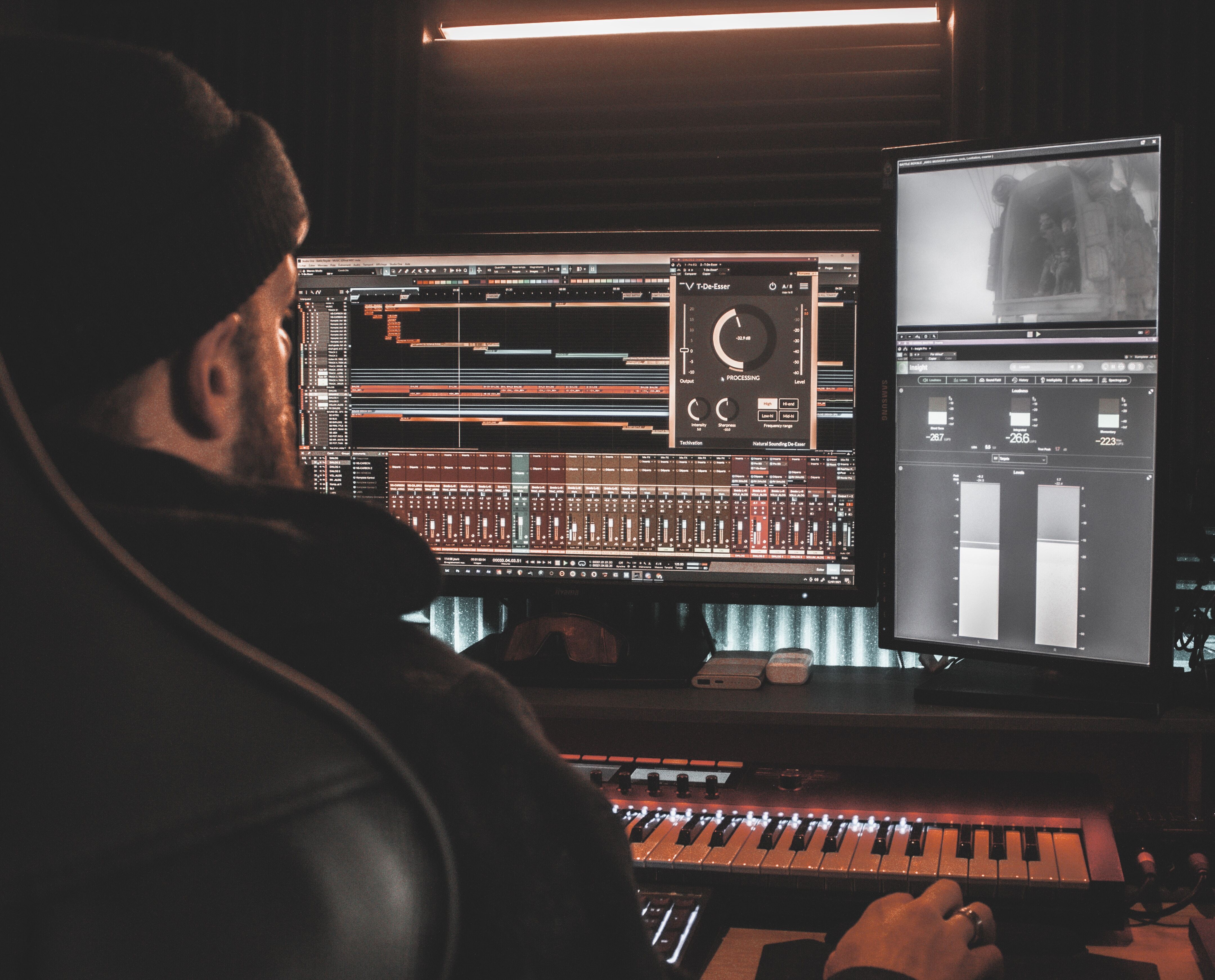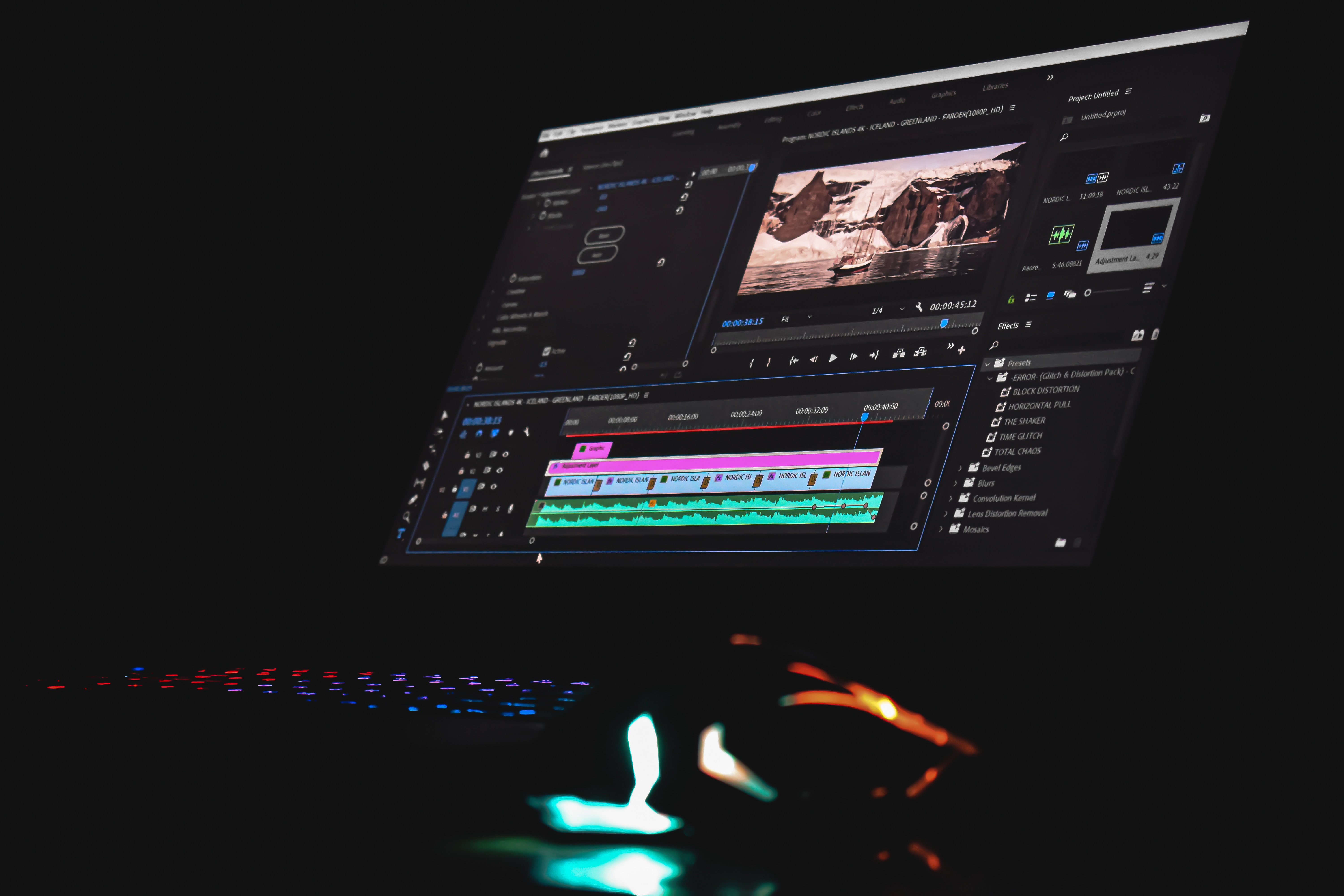Music licenses can get expensive for content creators, especially if you are working with popular songs, royalties, and commercial projects. Unfortunately, only working with music that isn't copyrighted won't give you many options, either.
Royalty-free music simplifies your content creation process by giving you various high-quality tracks to choose from. However, you can't use this stock music for every type of project. Before you start, you must determine if you can use royalty-free music for commercial use.
What Is Royalty-Free Music?
Royalty-free music describes audio tracks that you don't have to pay to use outside of a single flat fee. Royalty-free music is copyrighted, but you don't have to pay the owner royalties for additional views. This often makes the audio easier and more affordable to work with.
Royalty-free songs must often be licensed through the copyright owner. However, audio libraries such as StockMusic.net offer access to countless types of music. These services give you unlimited downloads of high-quality music under an easy royalty-free license.
What Does Commercial Use Entail?
Most commercial-use licenses are rather straightforward, with few specifications outside the initial costs. However, some copyright owners enforce usage restrictions that limit how you can use the audio in professional projects. For example, the license may restrict "commercial use" to certain types of media, such as streaming and social media platforms. Alternatively, they may ask you not to edit or modify the track beyond standard cuts.
Other specifications you may find in commercial-use music licenses include:
- Credit and attribution requirements
- Maximum number of uses
- Restrictions on where the audio is played
- Restrictions on certain images, such as locations
Fortunately, not all copyright holders are this complicated. At StockMusic.net, we have a vast library of royalty-free music for commercial use. This simplicity lets you find the right background tracks for your projects without worrying about licensing.
The Importance of Licensing for Commercial Projects
Licensing protects copyright holders' rights and your rights as a content creator by cleanly laying out stipulations. This guarantees artists have at least partial control over where their creations end up. As the person purchasing the rights, these agreements keep you compliant with copyright law and protect your projects if anyone disputes your music usage.
If royalty-free licenses don't meet your project's budget or timeframe, there are usually many songs that are not copyrighted and available for use. Stock music without copyright is generally free to use. However, some copyright-free music may still have restrictions based on the copyright holder's specifications. So, you should still research no-copyright music unless it comes from a trusted library.

Can You Use Royalty-Free Music For Commercial Projects?
You can use royalty-free music for commercial projects unless the music license specifies otherwise. Most copyright owners and royalty-free music libraries include commercial and personal use in the same music licenses. However, some artists offer pricier licenses for commercial use, while others don't allow their work to be used commercially at all.
Furthermore, complicated copyright laws can restrict you from obtaining certain commercial licenses. The best way to determine if you can use royalty-free music for commercial use is to read each song's fine print.
Understanding Copyright Laws
Music copyright is a multi-layered system that aims to protect songwriters, performers, and other musical artists' rights. Unfortunately, these layers make it challenging to license certain audio, such as cover songs, collaborations, and recordings by deceased artists.
A piece of music's copyright generally falls into two categories:
- Musical work copyright: This layer protects the song's original composition, lyrics, and concept.
- Music recording copyright: This layer protects the performers' and record labels' rights to the audio track.
You may only have to work through one copyright holder or library to obtain a track's licensing. Many tracks are by independent artists who wrote and recorded their songs themselves. However, songs with various writers, performers, and producers may be more complicated — especially if one party doesn't want the audio to be used commercially.
These copyright laws may seem simple at times, but many content creators overlook critical details. For instance, you are free to use public domain musical works, such as Beethoven's 5th. However, any recordings of the composition made since 1927 will still be protected.
Rights Of Copyrighter Holder and Content Creator
After you've agreed to a license, you have the right to use the music track as you please — as long as you meet the license's terms of use. Licensing agreements protect both you and the copyright holder. This means the copyright holder cannot demand royalties or change usage restrictions later unless the license says otherwise.
Though copyright holders will likely never bother you about your audio usage, you may still face legal complications that require you to understand your rights. For example, if you upload a commercial with background music to YouTube, their algorithm may flag the song as copyrighted. As a result, they may temporarily demonetize or remove your video until you can dispute that you can use the royalty-free music on YouTube.
Types Of Music Licenses and Agreements
You can use royalty-free music for commercial use only if your music license allows it. StockMusic.net lets you choose from three types of licenses that offer different types of uses depending on your projects and goals. These licenses include:
- Audio / Public Performance License: This option lets you play the audio in public and crowded settings, such as for restaurants, events, and telephone hold music.
- Sync / Media Producers License: Ideal for most content creators, this option lets you sync the audio in other media projects, including commercials, podcasts, and YouTube videos.
- Extended Licenses: These options let you use the audio for physical and digital resale. For example, you will need this license if you use a song in a studio-distributed movie.
Explore Our Royalty-Free Music Library and Enhance Your Commercial Ventures
Background music, sound effects, and ambiance can make a significant difference in your project. The right audio makes advertisements more noticeable, engaging, and likely to get viewers to take action. At StockMusic.net, we have a vast library of royalty-free music you can use commercially. Explore our audio library to learn more.




